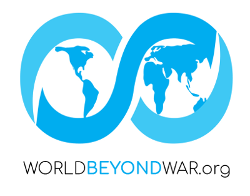

![]()
We'd like to invite you to something that is
much more than a simple webinar. This is a thorough
education gained over a six-week period. You can reserve
a spot in our upcoming online course on War and the
Environment, planned for June 7 to July
18.
Click
here to learn more, watch a video about the course, and
register.
Grounded in research on peace and ecological
security, this course focusses on the relationship
between two existential threats: war and environmental
catastrophe. We will cover:
• Where wars happen and why.
• What wars do to
the earth.
• What imperial militaries do to the
earth back home.
• What nuclear weapons have done
and could do to people and the planet.
• How this
horror is hidden and maintained.
• What can be done.
This course is 100% online and interactions
are not live or scheduled, so you can take part whenever
works for you. Weekly content includes a mix of
text, images, video, and audio. Instructors and students
utilize online discussion forums to go over each week's
content, as well as to provide feedback on optional
assignment submissions.
The course also
includes three 1-hour optional zoom calls which
are designed to facilitate a more interactive and
real-time learning experience.
Education Director Phill Gittins and
other World BEYOND War staff, board members, and
partners will be online throughout the six weeks helping
to facilitate along with six outstanding guest
facilitators from around the
world.
Week 1: Where Wars
Happen and Why (June 7-13) with Dr. Serena
Clark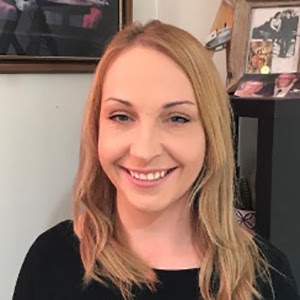
Serena works as a postdoctoral researcher at Maynooth
University and is a research consultant for the
International Organization of Migration, United Nations.
She holds a doctorate in international peace studies and
conflict resolution from Trinity College Dublin, where
she was a Rotary International Global Peace Scholar and
Trinity College Dublin Postgraduate Fellow. Serena has
extensive experience researching conflictual and
post-conflict areas, such as the Middle East and
Northern Ireland and teaches courses on conflict and
conflict resolution. She has published on topics related
to immigration policy, the use of visual methods to
measure peace processes in post-conflict areas and
migration crises, the impact of COVID-19 on
peacebuilding, and the pandemic's impact on gender
inequality. Her research interests include post-conflict
reconstruction, peacebuilding, displaced populations,
and visual methodologies.
Week 2: What
Wars Do to the Earth (June 14-20) with Elizabeth
Katherine Gamarra
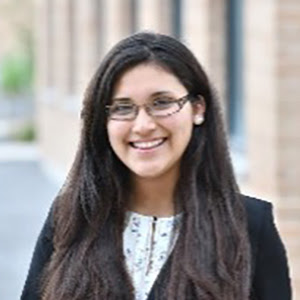
Elizabeth Gamarra is a TEDx speaker, Fulbrighter at
Instituto Empresa (IE) University in Madrid, and former
World Rotary Peace Fellow at International Christian
University (ICU). She has a double Masters in the field
of Mental Health (U.S) and Peace and Conflict Studies
(Japan) which has permitted her to work as a therapist
and mediator with refugee and indigenous communities
from the U.S, as well as engage in nonprofit work in
Latin America. At age 14, she founded "generations of
legacies" which is an initiative focused on educational
empowerment. After completing her graduate-level studies
at the record age of 19, she continued to grow this
initiative from abroad. She has worked closely with
Amnesty International USA, the Center of Migration and
Refugee Integration, the Global Peacebuilding of Japan,
Mediators Beyond Borders International (MBBI) and
currently, working with the Tokyo Office Academic
Council of the United Nations Systems (ACUNS) as the
Tokyo Liaison Officer. She is also a MEXT Researcher
with the Japanese Government. She is the former
recipient of the 2020 TUMI USA National Award, the
Martin Luther King Drum Major Award, Young Philanthropy
Award, the Diversity and Equity University Award among
others. Currently, she sits in the GPAJ Board of
Directors and is a Board of Trustees for Pax Natura
International. Recently, she has been part of helping
start "RadioNatura," a unique multilingual podcast on
peace and nature.
Week 3: What Imperial
Militaries Do to the Earth Back Home (June 21-27) with
Henrique Garbino

Henrique Garbino is currently a Doctoral Student at
the Swedish Defence University (2021-). He is mainly
interested in bridging theory and practice in the fields
of in mine action, peace operations, and civil-military
relations. His dissertation focuses on the use of
landmines and other explosive devices by non-state armed
groups. As a combat engineer officer in the Brazilian
Army (2006-2017), Henrique specialised in explosive
ordnance disposal, civil-military coordination, and
training and education; in contexts as diverse as border
control, counter-trafficking and United Nations peace
operations. He was deployed internally in the border
between Brazil and Paraguay (2011-2013) and in Rio de
Janeiro (2014), as well as externally to the United
Nations Stabilization Mission in Haiti (2013-2014).
Later, he joined the Brazilian Peace Operations Joint
Training Center (2015-2017), where he served as an
instructor and course coordinator. In the humanitarian
and development sector, Henrique supported the mine
action programmes in Tajikistan and Ukraine as a Rotary
Peace Fellow (2018); and later joined the International
Committee of the Red Cross as a Weapon Contamination
Delegate in Eastern Ukraine (2019-2020). Henrique holds
a master's degree in Peace and Conflict Studies Master's
Programme from Uppsala University (2019); a Postgraduate
Certificate in Military History from the University of
South Catarina (2016), and a bachelor's degree in
Military Sciences from the Military Academy of Agulhas
Negras (2010).
Week 4: What Nuclear
Weapons Have Done and Could Do (June 28-July 4) with
Stefanie Wesch
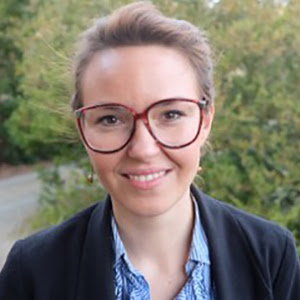 Ms. Wesch completed her undergraduate degree
in the field of International Relations at Hawai´i
Pacific University. She was able to gain initial work
experience at the Mission of Afghanistan to the United
Nations in New York, where she was active in the First
and Third Committee of the General Assembly, as well as
writing occasional speeches for Ambassador Tanin. Ms.
Wesch managed to further develop her authoring skills
between 2012 and 2013 while working at the Bolivian
think tank Institute of International Studies (IDEI).
Here she wrote about a diverse set of topics, ranging
from the Syrian conflict to the Bolivian-Chilean border
dispute, from an International Law and Human Rights
perspective. Realizing her strong interest in conflict
studies, Ms. Wesch obtained her Master´s Degree in
Conflict Resolution and Governance at the University of
Amsterdam, where she focused on social movements for the
purpose of her Master´s thesis. Putting to use her
regional focus on the MENA region, during both her
graduate and undergraduate studies, at PIK Ms. Wesch is
working on the Climate-Conflict-Migration-Nexus in the
MENA region and the Sahel. She has undertaken
qualitative fieldwork in the regions of Agadez, Niamey
and Tillaberie in Niger in 2018 as well as in
Burkina Faso in 2019. Her research in the region has
focused on farmer-herder conflicts, specifically causes,
prevention and mediation mechanisms and their influence
on recruitment into extremist organizations and
migration decisions in the Sahel. Ms. Wesch is currently
a doctoral researcher and is writing her dissertation on
the interaction of climate change and conflict in
Central Asia plus Afghanistan for the Green Central Asia
Project financed by the German Foreign Ministry.
Ms. Wesch completed her undergraduate degree
in the field of International Relations at Hawai´i
Pacific University. She was able to gain initial work
experience at the Mission of Afghanistan to the United
Nations in New York, where she was active in the First
and Third Committee of the General Assembly, as well as
writing occasional speeches for Ambassador Tanin. Ms.
Wesch managed to further develop her authoring skills
between 2012 and 2013 while working at the Bolivian
think tank Institute of International Studies (IDEI).
Here she wrote about a diverse set of topics, ranging
from the Syrian conflict to the Bolivian-Chilean border
dispute, from an International Law and Human Rights
perspective. Realizing her strong interest in conflict
studies, Ms. Wesch obtained her Master´s Degree in
Conflict Resolution and Governance at the University of
Amsterdam, where she focused on social movements for the
purpose of her Master´s thesis. Putting to use her
regional focus on the MENA region, during both her
graduate and undergraduate studies, at PIK Ms. Wesch is
working on the Climate-Conflict-Migration-Nexus in the
MENA region and the Sahel. She has undertaken
qualitative fieldwork in the regions of Agadez, Niamey
and Tillaberie in Niger in 2018 as well as in
Burkina Faso in 2019. Her research in the region has
focused on farmer-herder conflicts, specifically causes,
prevention and mediation mechanisms and their influence
on recruitment into extremist organizations and
migration decisions in the Sahel. Ms. Wesch is currently
a doctoral researcher and is writing her dissertation on
the interaction of climate change and conflict in
Central Asia plus Afghanistan for the Green Central Asia
Project financed by the German Foreign Ministry.
Week 5: How This Horror Is Hidden and
Maintained (July 5-11) with Dr. Michael
Chew
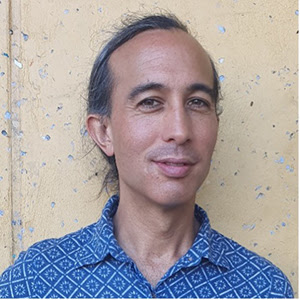 Dr Michael Chew is a sustainability
educator, community cultural development practitioner,
and photographer/designer with degrees in participatory
design, social ecology, art photography, humanities and
mathematical physics. He has a background in
community-based sustainability programs in NGO and local
government sectors and is passionate about the potential
for creativity to empower and connect communities across
cultural, economic and geographic divides. He co-founded
the Melbourne Environmental Arts Festival in 2004, a
multi-venue community arts festival, and has since
coordinated various social and environmentally focused
creative youth projects. He developed his international
perspectives from involvement in grassroots global
solidarity initiatives: co-founding the NGO Friends of
Kolkata to coordinate international volunteer programs
and teach photovoice; working in Bangladesh on
community-based climate adaptation; and co-founding the
Friends of Bangladesh group to continue climate justice
solidarity activities. He has just finished a design
based action-research PhD exploring how participatory
photography can inspire youth environmental behaviour
change across cities in Bangladesh, China and Australia,
and is now developing a freelance consultancy practice.
Dr Michael Chew is a sustainability
educator, community cultural development practitioner,
and photographer/designer with degrees in participatory
design, social ecology, art photography, humanities and
mathematical physics. He has a background in
community-based sustainability programs in NGO and local
government sectors and is passionate about the potential
for creativity to empower and connect communities across
cultural, economic and geographic divides. He co-founded
the Melbourne Environmental Arts Festival in 2004, a
multi-venue community arts festival, and has since
coordinated various social and environmentally focused
creative youth projects. He developed his international
perspectives from involvement in grassroots global
solidarity initiatives: co-founding the NGO Friends of
Kolkata to coordinate international volunteer programs
and teach photovoice; working in Bangladesh on
community-based climate adaptation; and co-founding the
Friends of Bangladesh group to continue climate justice
solidarity activities. He has just finished a design
based action-research PhD exploring how participatory
photography can inspire youth environmental behaviour
change across cities in Bangladesh, China and Australia,
and is now developing a freelance consultancy practice.
Week 6: What Can Be Done (July 12-18)
with Greta Zarro and Rachel
Small
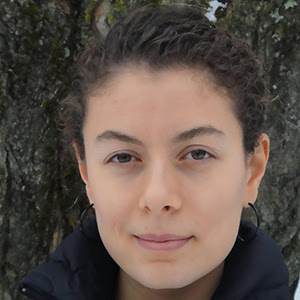
Greta Zarro is World BEYOND War
Organizing Director. She has a background in issue-based
community organizing. Her experience includes volunteer
recruitment and engagement, event organizing, coalition
building, legislative and media outreach, and public
speaking. Greta graduated as valedictorian from St.
Michael’s College with a bachelor’s degree in
Sociology/Anthropology. She previously worked as New
York Organizer for leading non-profit Food & Water
Watch. There, she campaigned on issues related to
fracking, genetically engineered foods, climate change,
and the corporate control of our common resources. Greta
and her partner run Unadilla Community Farm, a
non-profit organic farm and permaculture education
center in Upstate New York.
 Rachel Small is World BEYOND War Canada
Organizer. She is a community organizer based in
Toronto, Canada, on Dish with One Spoon and Treaty 13
Indigenous territory. She has organized within local and
international social/environmental justice movements for
over a decade, with a special focus on working in
solidarity with communities harmed by Canadian
extractive industry projects in Latin America. She has
also worked on campaigns and mobilizations around
climate justice, decolonization, anti-racism, disability
justice, and food sovereignty. She currently organizes
in Toronto with the Mining Injustice Solidarity Network
and has a Masters in Environmental Studies from York
University. She has a background in art-based activism
and has facilitated projects in community mural-making,
independent publishing and media, spoken word, guerilla
theatre, and communal cooking with people of all ages
across Canada. She lives downtown with her partner, kid,
and friend, and can often be found at a protest or
direct action, gardening, spray painting, and playing
softball.
Rachel Small is World BEYOND War Canada
Organizer. She is a community organizer based in
Toronto, Canada, on Dish with One Spoon and Treaty 13
Indigenous territory. She has organized within local and
international social/environmental justice movements for
over a decade, with a special focus on working in
solidarity with communities harmed by Canadian
extractive industry projects in Latin America. She has
also worked on campaigns and mobilizations around
climate justice, decolonization, anti-racism, disability
justice, and food sovereignty. She currently organizes
in Toronto with the Mining Injustice Solidarity Network
and has a Masters in Environmental Studies from York
University. She has a background in art-based activism
and has facilitated projects in community mural-making,
independent publishing and media, spoken word, guerilla
theatre, and communal cooking with people of all ages
across Canada. She lives downtown with her partner, kid,
and friend, and can often be found at a protest or
direct action, gardening, spray painting, and playing
softball.
Time commitment/expectations: How
much time you spend and how deeply you engage is up to
you. At a minimum, you can expect to spend between 1-2
hours a week if you only review the weekly content (text
and videos). We hope, however, you’ll want to engage in
the online dialogue with peers and experts. This is
where the real richness of the learning occurs, where we
have the opportunity to explore new ideas, strategies,
and visions for building a more peaceful world.
Depending on your level of engagement with the online
discussion you can expect to add another 1-3 hours a
week. Finally, all participants are encouraged to
complete optional assignments (required to earn a
certificate). This is an opportunity to deepen and apply
the ideas explored each week to practical possibilities.
Expect another 2 hours a week if you pursue these
options.
Accessing the course. Prior to the
start date, you will be sent instructions for how to
access the course.
Earn a certificate.
To earn a certificate, participants must also
complete optional weekly written assignments.
Instructors will return the assignment to the student
with detailed feedback. Submissions and feedback can be
shared with everyone taking the course or kept private
between a student and the instructor, at the student’s
choice. Submissions must be completed by the conclusion
of the course.
The cost of the
course is the same for someone completing all,
some, or none of the assignments: $100 (Pay less if you
have to, more if you can.)
There will be a limit of 150 tickets sold for
this course.
Register
here.

Questions? Contact: ph...@worldbeyondwar.org
To register by check, 1. Email Phill
and tell him. 2. Make the check out to World BEYOND
War/AFGJ and send it to World BEYOND War 513 E Main St
#1484 Charlottesville VA 22902 USA
World
BEYOND War is a global network of volunteers, chapters,
and affiliated organizations advocating for the
abolition of the institution of war.
Donate
to support our people-powered movement for peace.









Opt-in
to mobile updates. Manage
email preferences. Privacy
policy.
Should giant war-profiteering
corporations decide what emails you don't want to read?
We don't think so either. So, please stop our emails
from going into "junk" or "spam" by "white listing,"
marking as "safe," or filtering to "never send to
spam."
World BEYOND War | 513 E Main St #1484 |
Charlottesville, VA 22902
USA






 Ms. Wesch completed her undergraduate degree
in the field of International Relations at Hawai´i
Pacific University. She was able to gain initial work
experience at the Mission of Afghanistan to the United
Nations in New York, where she was active in the First
and Third Committee of the General Assembly, as well as
writing occasional speeches for Ambassador Tanin. Ms.
Wesch managed to further develop her authoring skills
between 2012 and 2013 while working at the Bolivian
think tank Institute of International Studies (IDEI).
Here she wrote about a diverse set of topics, ranging
from the Syrian conflict to the Bolivian-Chilean border
dispute, from an International Law and Human Rights
perspective. Realizing her strong interest in conflict
studies, Ms. Wesch obtained her Master´s Degree in
Conflict Resolution and Governance at the University of
Amsterdam, where she focused on social movements for the
purpose of her Master´s thesis. Putting to use her
regional focus on the MENA region, during both her
graduate and undergraduate studies, at PIK Ms. Wesch is
working on the Climate-Conflict-Migration-Nexus in the
MENA region and the Sahel. She has undertaken
qualitative fieldwork in the regions of Agadez, Niamey
and Tillaberie in Niger in 2018 as well as in
Burkina Faso in 2019. Her research in the region has
focused on farmer-herder conflicts, specifically causes,
prevention and mediation mechanisms and their influence
on recruitment into extremist organizations and
migration decisions in the Sahel. Ms. Wesch is currently
a doctoral researcher and is writing her dissertation on
the interaction of climate change and conflict in
Central Asia plus Afghanistan for the Green Central Asia
Project financed by the German Foreign Ministry.
Ms. Wesch completed her undergraduate degree
in the field of International Relations at Hawai´i
Pacific University. She was able to gain initial work
experience at the Mission of Afghanistan to the United
Nations in New York, where she was active in the First
and Third Committee of the General Assembly, as well as
writing occasional speeches for Ambassador Tanin. Ms.
Wesch managed to further develop her authoring skills
between 2012 and 2013 while working at the Bolivian
think tank Institute of International Studies (IDEI).
Here she wrote about a diverse set of topics, ranging
from the Syrian conflict to the Bolivian-Chilean border
dispute, from an International Law and Human Rights
perspective. Realizing her strong interest in conflict
studies, Ms. Wesch obtained her Master´s Degree in
Conflict Resolution and Governance at the University of
Amsterdam, where she focused on social movements for the
purpose of her Master´s thesis. Putting to use her
regional focus on the MENA region, during both her
graduate and undergraduate studies, at PIK Ms. Wesch is
working on the Climate-Conflict-Migration-Nexus in the
MENA region and the Sahel. She has undertaken
qualitative fieldwork in the regions of Agadez, Niamey
and Tillaberie in Niger in 2018 as well as in
Burkina Faso in 2019. Her research in the region has
focused on farmer-herder conflicts, specifically causes,
prevention and mediation mechanisms and their influence
on recruitment into extremist organizations and
migration decisions in the Sahel. Ms. Wesch is currently
a doctoral researcher and is writing her dissertation on
the interaction of climate change and conflict in
Central Asia plus Afghanistan for the Green Central Asia
Project financed by the German Foreign Ministry. Dr Michael Chew is a sustainability
educator, community cultural development practitioner,
and photographer/designer with degrees in participatory
design, social ecology, art photography, humanities and
mathematical physics. He has a background in
community-based sustainability programs in NGO and local
government sectors and is passionate about the potential
for creativity to empower and connect communities across
cultural, economic and geographic divides. He co-founded
the Melbourne Environmental Arts Festival in 2004, a
multi-venue community arts festival, and has since
coordinated various social and environmentally focused
creative youth projects. He developed his international
perspectives from involvement in grassroots global
solidarity initiatives: co-founding the NGO Friends of
Kolkata to coordinate international volunteer programs
and teach photovoice; working in Bangladesh on
community-based climate adaptation; and co-founding the
Friends of Bangladesh group to continue climate justice
solidarity activities. He has just finished a design
based action-research PhD exploring how participatory
photography can inspire youth environmental behaviour
change across cities in Bangladesh, China and Australia,
and is now developing a freelance consultancy practice.
Dr Michael Chew is a sustainability
educator, community cultural development practitioner,
and photographer/designer with degrees in participatory
design, social ecology, art photography, humanities and
mathematical physics. He has a background in
community-based sustainability programs in NGO and local
government sectors and is passionate about the potential
for creativity to empower and connect communities across
cultural, economic and geographic divides. He co-founded
the Melbourne Environmental Arts Festival in 2004, a
multi-venue community arts festival, and has since
coordinated various social and environmentally focused
creative youth projects. He developed his international
perspectives from involvement in grassroots global
solidarity initiatives: co-founding the NGO Friends of
Kolkata to coordinate international volunteer programs
and teach photovoice; working in Bangladesh on
community-based climate adaptation; and co-founding the
Friends of Bangladesh group to continue climate justice
solidarity activities. He has just finished a design
based action-research PhD exploring how participatory
photography can inspire youth environmental behaviour
change across cities in Bangladesh, China and Australia,
and is now developing a freelance consultancy practice.
 Greta Zarro is World BEYOND War
Organizing Director. She has a background in issue-based
community organizing. Her experience includes volunteer
recruitment and engagement, event organizing, coalition
building, legislative and media outreach, and public
speaking. Greta graduated as valedictorian from St.
Michael’s College with a bachelor’s degree in
Sociology/Anthropology. She previously worked as New
York Organizer for leading non-profit Food & Water
Watch. There, she campaigned on issues related to
fracking, genetically engineered foods, climate change,
and the corporate control of our common resources. Greta
and her partner run Unadilla Community Farm, a
non-profit organic farm and permaculture education
center in Upstate New York.
Greta Zarro is World BEYOND War
Organizing Director. She has a background in issue-based
community organizing. Her experience includes volunteer
recruitment and engagement, event organizing, coalition
building, legislative and media outreach, and public
speaking. Greta graduated as valedictorian from St.
Michael’s College with a bachelor’s degree in
Sociology/Anthropology. She previously worked as New
York Organizer for leading non-profit Food & Water
Watch. There, she campaigned on issues related to
fracking, genetically engineered foods, climate change,
and the corporate control of our common resources. Greta
and her partner run Unadilla Community Farm, a
non-profit organic farm and permaculture education
center in Upstate New York. Rachel Small is World BEYOND War Canada
Organizer. She is a community organizer based in
Toronto, Canada, on Dish with One Spoon and Treaty 13
Indigenous territory. She has organized within local and
international social/environmental justice movements for
over a decade, with a special focus on working in
solidarity with communities harmed by Canadian
extractive industry projects in Latin America. She has
also worked on campaigns and mobilizations around
climate justice, decolonization, anti-racism, disability
justice, and food sovereignty. She currently organizes
in Toronto with the Mining Injustice Solidarity Network
and has a Masters in Environmental Studies from York
University. She has a background in art-based activism
and has facilitated projects in community mural-making,
independent publishing and media, spoken word, guerilla
theatre, and communal cooking with people of all ages
across Canada. She lives downtown with her partner, kid,
and friend, and can often be found at a protest or
direct action, gardening, spray painting, and playing
softball.
Rachel Small is World BEYOND War Canada
Organizer. She is a community organizer based in
Toronto, Canada, on Dish with One Spoon and Treaty 13
Indigenous territory. She has organized within local and
international social/environmental justice movements for
over a decade, with a special focus on working in
solidarity with communities harmed by Canadian
extractive industry projects in Latin America. She has
also worked on campaigns and mobilizations around
climate justice, decolonization, anti-racism, disability
justice, and food sovereignty. She currently organizes
in Toronto with the Mining Injustice Solidarity Network
and has a Masters in Environmental Studies from York
University. She has a background in art-based activism
and has facilitated projects in community mural-making,
independent publishing and media, spoken word, guerilla
theatre, and communal cooking with people of all ages
across Canada. She lives downtown with her partner, kid,
and friend, and can often be found at a protest or
direct action, gardening, spray painting, and playing
softball.